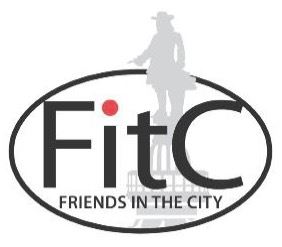
Join me this year as we explore some well-known and lesser-known mostly historic sites in Philadelphia in a monthly program I’m calling “I’ve lived in Philadelphia “forever” but have never been to ______.”
“Forever” can mean a short time or many years, and maybe you have visited the site a long time ago, or never. We'll visit locations from the 18th Century to the present time every month throughout 2025. I welcome your suggestions of places you'd like to visit.
Starting in January, we visited two landmarks of the 18th Century, Christ Church and Carpenters’ Hall. In February we visited the monumental landmark of 19th Century Philadelphia, City Hall, and in March, the 20th Century was represented by the Kimmel Center. In April we returned to the 18th Century to visit another landmark Philadelphia building, Pennsylvania Hospital. In May, we moved ahead to the Victorian period again, for a visit to the Masonic Temple, and in June we advanced once more to the 20th Century to visit an architectural masterpiece of Frank Lloyd Wright, Beth Sholom Synagogue in Elkins Park. Now it’s time to go back to an earlier time, and to take advantage of the summer weather, we’ll go outdoors (and indoors) to visit
Wyck Historic House and Garden.
Wyck is a National Historic Landmark house, garden, and farm in the Germantown neighborhood of Philadelphia that served as the ancestral home to one Philadelphia family for nine generations (1690-1973). Here, traditional Quaker culture blended with a passion for innovation.
The people who lived and worked at Wyck expressed these values through their commitment to education, horticulture, natural history, and preservation. Today, the Wyck Association connects this family and its rich history to the community through programs that focus on history, horticulture, and urban agriculture, using the past as inspiration for the present.
The 2.5-acre, centuries-old site plays an essential role in the life of the 21st-century urban neighborhood, using buildings, landscape, and collections to provide educational, cultural, and nutritional resources for neighbors and visitors.
Wyck’s most beloved and treasured landscape feature is its 1820’s rose garden which still grows in its original plan, as revealed by sketches, plant lists, and correspondence held in the Wyck Papers. Today it stands as an authentic archetype of an early colonial American rose garden.
A rare survivor of its time, it is widely recognized as the oldest rose garden in original plan in America, with 50+ cultivars of historic roses. Included in the garden are the original rose plants from the 19th century design, as well as plants from its earlier iteration as a kitchen garden in the 18th century. Several roses in cultivation today were thought lost until they were discovered growing at Wyck, and all specimens of these varieties available in commercial trade descend from Wyck’s collection.
Beginning with Rosa spinosissima in early May and ending with Rosa moschata in late October, Wyck’s historic roses are remarkable for their beauty as well as for their fragrance, which fills the garden.
Our Tour
We will enjoy a guided tour of the first floor rooms of the Wyck home and also the gardens by Grace Ford-Dicks, Manager of Interpretation and Public Outreach, and Wyck’s director, Kim Staub.
Cost $12 per person ($10.00 fee, balance to FitC for administrative costs). Last date for cancellation with a refund is July 3.
Number: Limited to 30 attendees.
Accessibility: Wyck has no first floor steps, but the ground throughout the property is uneven and unpaved. In addition, the house is undergoing a major exterior restoration project, so there is scaffolding on the house that impacts accessibility throughout the grounds.
Wyck is located at 6026 Germantown Avenue, at Walnut Lane, Philadelphia, PA 19144.
Parking: There is free parking available along West Walnut Lane, East High Street, and the surrounding residential neighborhood. Metered parking is available along the Germantown Avenue commercial corridor.
Public Transportation: Public transportation to Wyck is possible by SEPTA bus routes: 23, 65, and XH/8, or by SEPTA Regional Rail on the Chestnut Hill West line to the Tulpehocken station, then a 10-15-minute walk through the beautiful Tulpehocken Station Historic District.
This is a rain or shine event.
Thanks to FitC Volunteer Organizer: Joan Wells
Questions about registration? Contact mignon.adams@gmail.com

